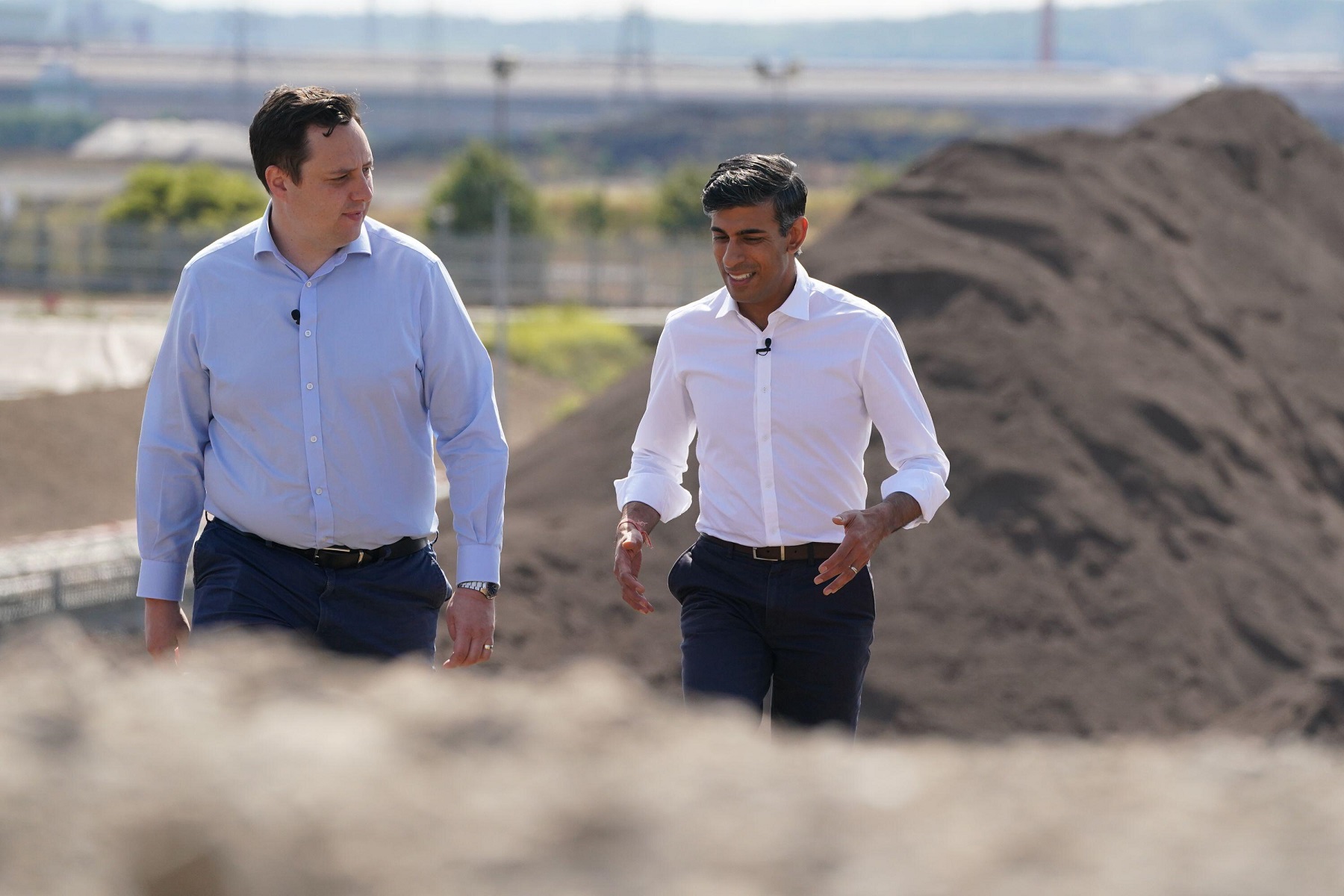Tees Valley mayoral election 2024: Candidates, analysis and how to vote
Chris McEwan, Ben Houchen and Simon Thorley are all looking to be elected as Tees Valley Mayor on 2 May
A mayor for the Tees Valley Combined Authority will be elected on 2 May.
Voters in Darlington, Hartlepool, Middlesbrough, Redcar and Cleveland, and Stockton-on-Tees are going to the polls.
The controversial current mayor Ben Houchen – Baron Houchen of High Leven to give him his full title since last year – is seeking a third term after narrowly being elected in the area’s first mayoral elections in 2017 and then defeating his Labour opponent in 2021, with 72.8 per cent of the vote.
The mayor has to work alongside the five Tees Valley local authorities, with responsibilities over economic growth, skills, transport and other areas, but there has been friction between the Conservative peer and the other leaders, who are split 4-1 along Labour-Conservative party lines since last year’s local elections.
Houchen has gained national visibility for his stewardship of the vast Teesworks regeneration site and freeport. A government inquiry into his dealings with two local developers found no evidence of corruption but said decisions taken by bodies he chairs “did not meet the standards expected when managing public funds”.
The candidates
- Chris McEwan, Labour
- Ben Houchen, Conservative Party
- Simon Thorley, Liberal Democrats
To some extent sitting elected mayors are permanently campaigning, such is the high profile nature of the job. Houchen, like other mayors Andy Burnham, Steve Rotheram and Andy Street, enjoys name recognition way greater than council leaders. With his huge majority, Houchen will be hard to beat but latest polling suggests the Mayoral election is on a knife-edge.
Both Houchen and McEwan have 47 per cent of likely votes according to new data from Redfield and Wilton Strategies.
He stands on his investment and job creation record, dismissing widespread criticism of his business dealings, but he’ll lose the Covid vaccine bounce that Conservatives enjoyed in 2021’s election, and now contends with a national swing against them.
Stuart Wilks-Heeg, politics professor at Liverpool University, says: “There are very major issues about what Ben Houchen has been doing in Tees Valley, and the details are coming out, but whether that will impact on how people vote? Potentially not enough to see him removed from office.
“He may well have a little time to run yet. It may catch up with him eventually but for this election he may be safe. But Labour will want to make progress there and they’ll want to take that mayoralty if they possibly can.”
Chris McEwan is launching Labour’s assault. The deputy leader of Darlington Council is pledging to “open up the books” on Teesworks, if elected, and “never to make a decision behind a closed door”.
Simon Thorley’s priorities would be to invest £25 million in new early years support programme, introduce grants for adult learners and bring buses under public control.
Wilks-Heeg points out that this election will use the first past the post system, not the supplementary vote method used previously in mayoral elections.
“Now people are going to have to pick one candidate. We’ll have to see what difference that makes.”
How to vote
Applications to register to vote had to reach the relevant Electoral Registration Officer by 12 midnight on Tuesday 16 April.
Applications, amendments or cancellations of postal votes must reach the relevant Electoral Registration Officer by 5pm on Wednesday 17 April.
Applications to vote by proxy must reach the relevant Electoral Registration Officer by 5pm on Wednesday 24 April.
Applications to vote by emergency proxy must reach the relevant Electoral Registration Officer by 5pm on Thursday 2 May.
Voter ID
Last year the government introduced a requirement for voters to show photo ID when voting at a polling station at parliamentary elections, local elections, by-elections and Police and Crime Commissioner elections. More information on voter ID requirements is available here.
The deadline to apply for a Voter Authority Certificate if you don't already have an acceptable form of ID is 5pm Wednesday 24 April.
Polling cards and ballot papers
You’ll be sent a polling card before the election telling you when to vote and at which polling station.
You can only vote at the polling station location on your card. You do not have to take your poll card with you.
Give your name and address to the staff inside the polling station when you arrive.
You’ll need to show your photo ID.
You’ll be given a ballot paper listing the candidates. Take your ballot paper into a polling booth. Mark your ballot paper with an X – not a tick – next to the candidate you would like to vote for. You must vote for only one candidate.
Subscribe to The Teesside Lead for our news, recommendations and investigations here.
You can also read the previous edition of The Teesside Lead here
The Teesside Lead is now on Substack.
Become a Member, and get our most groundbreaking content first. Become a Founder, and join the newsroom’s internal conversation - meet the writers, the editors and more.





